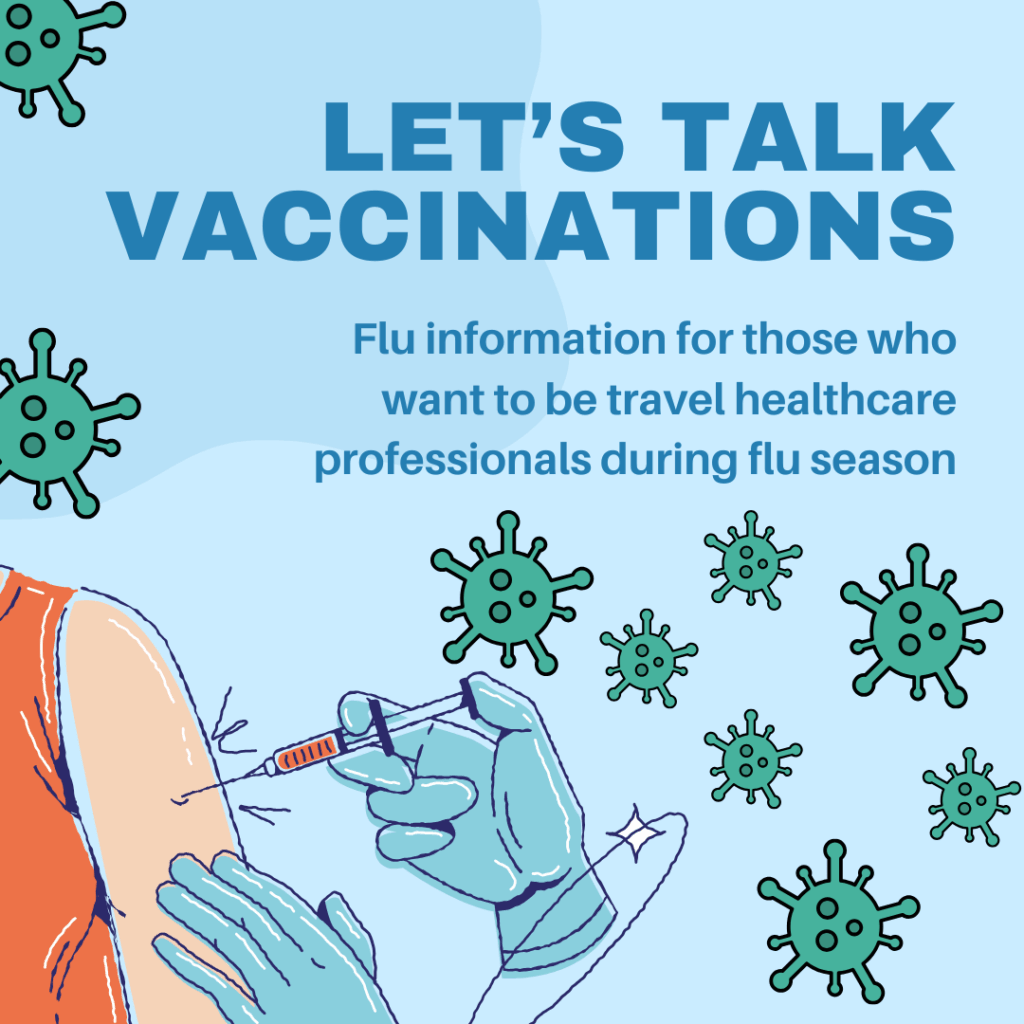
In the dynamic and high-stakes world of travel healthcare, professionals are constantly moving between hospitals, clinics, and communities—often across different cities or states. While this mobility is a core part of the job, it also introduces a unique set of health risks, especially during flu season. One of the most effective ways to mitigate these risks? The annual flu shot.
1. Protecting Yourself on the Front Lines
Travel healthcare workers are frequently exposed to infectious diseases, including influenza, in high-risk environments like hospitals, emergency rooms, and long-term care facilities. The flu can sideline even the healthiest of individuals, leading to missed assignments, potential complications, and prolonged recovery.
Getting vaccinated:
- Reduces the risk of flu illness by up to 60% in healthy adults.
- Lowers the chances of developing severe symptoms that could require hospitalization.
- Ensures you’re able to fulfill your professional obligations without interruptions.
2. Protecting Vulnerable Patients
As a travel healthcare professional, you work with diverse patient populations—many of whom are immunocompromised, elderly, or managing chronic conditions. For these patients, the flu is more than an inconvenience; it can be life-threatening.
By getting the flu shot, you’re actively helping to:
- Prevent the spread of the virus in high-risk clinical settings.
- Reduce flu-related complications and hospital admissions.
- Uphold the ethical duty to do no harm by limiting avoidable transmissions.
3. Meeting Employer and Facility Requirements
Many healthcare facilities, especially those in larger systems or with accreditation from organizations like The Joint Commission, require proof of flu vaccination as a condition of employment or placement. Refusal or delay in vaccination can limit your placement options or result in last-minute assignment changes.
Benefits of early compliance:
- Keeps your credentials up to date.
- Helps staffing agencies secure assignments for you more quickly.
- Avoids administrative delays and unnecessary disruptions.
4. Maintaining a Strong Workforce During Peak Season
The flu season typically overlaps with the healthcare system’s busiest time of year. Widespread flu outbreaks among staff can strain resources, reduce patient care quality, and place excessive burdens on those still able to work.
Getting vaccinated contributes to:
- A more resilient and available workforce.
- Better continuity of care for patients.
- A stronger, more reliable reputation among your staffing agency and clinical teams.
5. It’s Safe, Quick, and Widely Accessible
Flu vaccines are available at most pharmacies, urgent care clinics, and healthcare facilities, often at no cost with insurance. Most staffing agencies and hospital systems offer them on-site for convenience. The shot itself takes less than five minutes, and any side effects are generally mild and short-lived.

 and then
and then